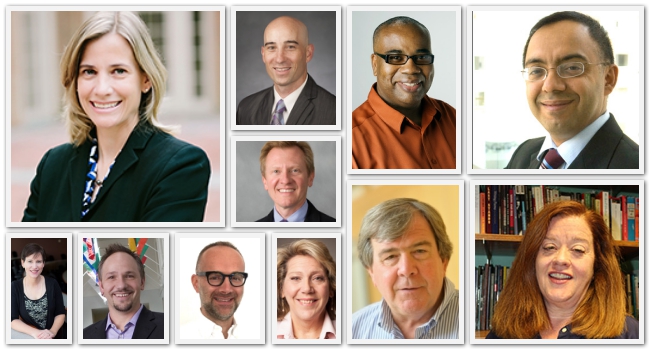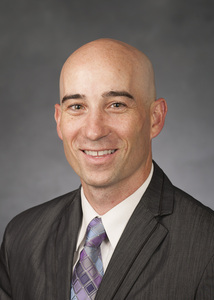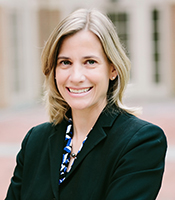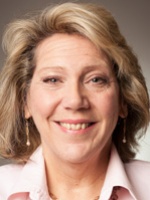“I’ve learned that people will forget what you said, people will forget what you did, but people will never forget how you made them feel.”
That Maya Angelou quote captures the essence of great teaching. It’s no secret: People forget over 90% of what they learn within a month. And our memories of people are often hollowed down to defining moments or amusing anecdotes. But the impression that our teachers leave – whether they inspire, enlighten, comfort, or test – lives on.
And you’ll find many special teachers who’ve touched the lives of this year’s best and brightest business majors. And these professors’ impact and commitment goes far beyond sharing information and testing understanding.
MOST IMPORTANT WORK OF TOP PROFESSORS OFTEN HAPPENS OUTSIDE THE CLASSROOM
Several top business majors feted their professors for being highly supportive. Emily Tillo of Boston University’s Questrom School of Business describes Professor Rebecca Nichols as her “northeast mom” whose commitment is reflected in her two hour commute to Boston three times a week.
“[Nichols] expresses genuine interest in her students’ lives and has a sincere passion for teaching,” Tillo tells Poets&Quants. Professor Nichols taught me the fundamentals of business, helped me improve my presentation skills, and was the first to ask how my golf tournaments went and wish me luck on upcoming competitions. I will always be grateful for her mentorship and support.”
At Brigham Young’s Marriott School, Professor Colby Wright is seemingly the west region’s answer to Nichols. Although Tanner Stutz lauds Wright for his “dynamic lectures that hook his students and engage them throughout,” it’s Wright’s efforts outside the classroom that makes him a standout.
“He also constantly communicated a deep sense of care and concern for his students’ well-being,” Stutz writes. “His door is always open to his students or prospective students. He is a true friend.”
CONTAGIOUS PASSION SPURS STUDENT INTEREST
Several professors also served as sources of inspiration for Class of 2016 business majors. The University of Michigan’s Jeff Yu describes the Ross program as a “competitive academic environment” where “the curved grades can often make students feel very average among a group of high-achieving individuals.” However, his managerial accounting professor, Lloyd Tanlu, flipped the script, reassuring him by pointing out the bigger picture.
“Lloyd helped me see past grades as the only measure of my performance, which gave me the confidence I needed to excel in Ross, in and out of the classroom.”
At the College of William and Mary’s Mason School of Business, Dr. Julie R. Agnew has evolved into being part of the school’s lore according to George Rudebusch. “No matter their age, ask a William & Mary alum who was a student of hers, and I guarantee they will hold Professor Agnew in similar esteem,” Rudebusch gushes. “She truly is an amazing person and an invaluable asset for the College.”
And this well-earned reputation stems from a contagious enthusiasm that turned a dry topic (debt markets) into a near-obsession for Rudebusch. And Agnew’s passion isn’t just limited to her areas of expertise. “I have never had a teacher or professor invest herself so deeply in the lives of her students,” Rudebusch adds. “I am amazed at how involved as a mentor she has become not only in my life, but also in the lives of so many other students.”
STUDENTS APPRECIATE CANDOR ABOUT WHAT AWAITS AFTER GRADUATION
The best professors bring more than passion to the classroom and a deep caring for students outside it. Chad Navis, who teaches entrepreneurship at the University of Wisconsin, couples candor with his enthusiasm and sense of humor to prepare students for the harsh realities that await them.
“He is not afraid to discuss with students the potential risks of entrepreneurship or the less than glamorous side,” says Wisconsin senior Vanessa Mariscal. “He works with students to limit these risks and make their ventures successful.”
Other professors, such as Prabhudev Konana at the University of Texas’ McCombs School of Business, reinforce key themes throughout their courses. Although Konana’s Introductory Information Technology Management curriculum covers the strategic implementation of hardware and software, Chirag Agrawal notes that his main message was to never take anything for granted and question assumptions and authority – a mindset that grows increasingly important as students grow in their careers.
“This idea of challenging the status quo has stayed with me throughout college and helped broaden my perspectives,” Agrawal declares.
ROLE MODELS WHO SET THE BAR AND LEAD BY EXAMPLE
Of course, every undergraduate business program has its phenoms. At Cornell University’s Dyson School, that title goes to Cindy van Es, who teaches applied economics and management. van Es was cited as the favorite professor of both Dyson business undergrads who represent the best and brightest of their class.
Described as a “rare combination of humor, compassion and a keen interest in her students” by Alex Muchoki, she is also renowned as an amazing mentor. “I know I can always turn to her for advice, whether it’s about classes, the best way to teach a statistics concept, job search, or personal issues,” explains Ashini Ganesalingam.
In fact, you could easily call van Es a role model. And the same label could be applied to Professor David Ravenscraft, who taught Mergers and Acquisitions to Anne Burke Baldridge at the University of North Carolina’s Kenan-Flagler Business School. Although Burke was able to apply Ravenscraft’s lessons in her summer internship, the real eye-opener came when she became his teaching assistant – and learned what it took for Ravenscraft to achieve excellence in all facets of his job.
“I have seen the amount of time he devotes to his students,” Burke Baldridge shares. “He spends hours over the summer refining the complex Excel models used in class, recruits impressive guest speakers, and willingly answers students’ phone calls late at night and on the weekends. He taught me that fulfillment in any career should not be defined solely by personal achievements; it should instead be measured by the impact we have on others.”















Questions about this article? Email us or leave a comment below.